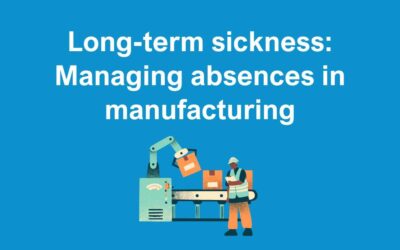All employers in the UK have a duty to prevent illegal working. This can be done by carrying out right to work checks on individuals before employing them to make sure they are permitted to work in the UK.
Documents that must be checked as part of this government process can include:
- Visa
- Passport
- National identity card
- Biometric residence permits
- Birth certificate
In April 2018 an online Right to Work Checking Service was introduced by The Home Office. If an employer has eligible individuals (with EU, EEA, or Swiss immigration status who can provide a valid share code) they can conduct an online right to work check. All other right to work checks (including UK and Irish nationals) had to be carried out face to face and in person. However, during the Covid-19 pandemic, it became challenging to carry out the checks face to face and in person. Therefore, the government introduced a temporary solution which allowed employers to use video links and emails. This was effective, however there was an increased risk for the use of fraudulent documents.
New Legislation for Right to Work Checks
From the 1st of October 2022, to maintain the benefits of using a digital method, but to mitigate the risk of fraudulent documents, employers will need to pay a fee to utilise an IDSP (Identity Service Providers) with accredited IDVT (Identification Documentation Verification Technology) to cover British and Irish citizens. Right to work checks performed in person remain unaffected.
IDSP will act on behalf of the employer and will validate the individual’s identity and their documents. The Home Office have advised that they will release a list of IDSP’s. If a business cannot find an IDSP then they must revert to completing their Right to Work checks in person. This consist of meeting with the employee and ensuring that the documents they are presenting are original, untampered with and belong to them. Employers should then take a signed and dated copy of the document(s) and retain these securely. If non-compliant with the new guidelines from the 1st of October 2022, then businesses could face substantial fines of £20,000 per employee or face a criminal conviction.
As the new legislation is coming into force imminently, we would advise you to ensure your recruitment and on-boarding processes are updated and follow the new protocol. This should be done as a priority.
Do not carry out right to work checks after an employee has already started employment. Ensure it is carried out before employment commences. If an offer of employment has already been made, please ensure it is conditional upon the right to work checks requirement being satisfied.
The key steps for businesses to prevent illegal working are:
- Carry out the appropriate right to work checks on all prospective employees before the employment starts.
- Perform follow-up checks on employees who have a time limited permission to work and live in the UK.
- Keep records of all the checks carried out. Employers should be able to produce documents quickly to demonstrate that a right to work check has been performed.
- Do not employ anyone who is known to be illegal worker.
We would recommend carrying out checks during the interview process and also at commencement of employment (induction) to verify it is in fact the same person. (You will be amazed at how many companies get caught out, especially with high volume recruitment campaigns).
If your people are fully remote, or hybrid working, consider how best to carry out these checks.
Do you need any further advice on right to work checks?







